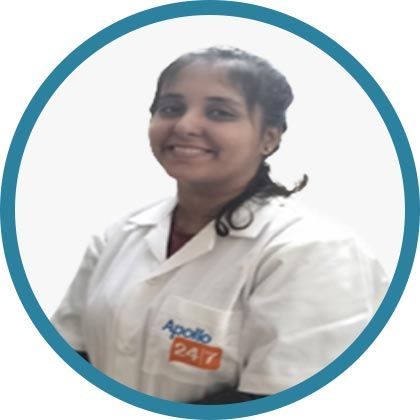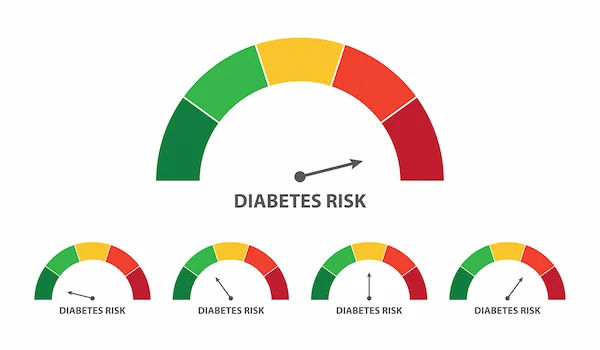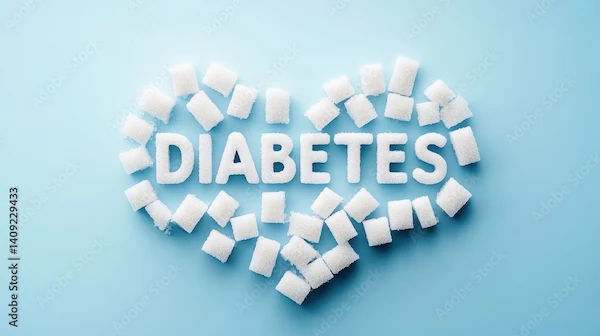Symptoms of High HbA1c Levels Explained
Discover the common symptoms of high HbA1c levels and what they indicate about long-term blood sugar control. Learn how to recognise warning signs and when to seek medical advice.


If you’ve recently had a blood test and your doctor mentioned that your HbA1c levels are high, you might be wondering what that means and how it affects your health. High HbA1c is often linked to diabetes or prediabetes, but many people don’t realise they have it until they experience symptoms.
Let’s break it down in simple terms so you can take control of your health.
What Is HbA1c?
HbA1c (Hemoglobin A1c) is a blood test that measures your average blood sugar levels over the past 2-3 months. Unlike a regular blood sugar test (which shows your sugar level at that moment), HbA1c gives a bigger picture of how well your body is managing glucose.
Normal HbA1c: Below 5.7%
Prediabetes: 5.7% to 6.4%
Diabetes: 6.5% or higher
If your HbA1c is high, it means your blood sugar has been elevated for a long time, which can lead to health complications if not managed properly.
Symptoms of High HbA1c Levels
Many people with high HbA1c don’t notice symptoms at first, but as blood sugar remains high, the following signs may appear:
1. Increased Thirst and Frequent Urination
High blood sugar makes your kidneys work harder to remove excess glucose, leading to more frequent urination (polyuria).
This can cause dehydration, making you feel extremely thirsty (polydipsia).
2. Constant Fatigue
When sugar stays in your blood instead of entering cells for energy, you may feel tired and sluggish even after resting.
3. Blurred Vision
High glucose levels can cause swelling in the eye lenses, leading to blurry vision. If untreated, this can damage blood vessels in the retina.
4. Slow Healing of Wounds
High blood sugar affects circulation and weakens the immune system, making cuts, bruises, or infections heal slower than usual.
Get Your Symptoms Checked Here
5. Frequent Infections
Yeast infections (thrush), urinary tract infections (UTIs), and skin infections may occur more often because sugar feeds bacteria and fungi.
6. Numbness or Tingling in Hands/Feet
Over time, high glucose damages nerves, causing diabetic neuropathy—leading to burning, tingling, or numbness in extremities.
7. Unexplained Weight Loss
If your body can’t use glucose for energy, it starts burning fat and muscle, causing sudden weight loss despite normal eating habits.
8. Increased Hunger (Even After Eating)
Since glucose isn’t properly absorbed by cells, your body signals constant hunger (polyphagia).
What Causes High HbA1c?
Several factors contribute to elevated HbA1c levels:
Insulin Resistance: Your body doesn’t respond well to insulin (common in Type 2 diabetes).
Poor Diet: Eating too many sugary or processed foods.
Lack of Exercise: Physical inactivity increases blood sugar levels.
Chronic Stress: Stress hormones like cortisol raise glucose.
Certain Medications: Steroids, antipsychotics, or diuretics can affect sugar levels.
Genetics: Family history of diabetes increases risk.
Health Risks of Uncontrolled High HbA1c
If left untreated, high HbA1c can lead to:
Heart disease & stroke (due to damaged blood vessels)
Kidney damage (diabetic nephropathy)
Nerve damage (neuropathy)
Vision loss (diabetic retinopathy)
Foot problems (ulcers, infections, even amputation risk)
How to Lower HbA1c Naturally?
The good news? You can lower your HbA1c with lifestyle changes:
1. Eat a Balanced Diet
Avoid: Sugary drinks, white bread, fried foods.
Choose: Whole grains, lean proteins, vegetables, nuts.
Portion control helps regulate blood sugar.
2. Exercise Regularly
30 minutes of walking, swimming, or yoga daily improves insulin sensitivity.
3. Stay Hydrated
Water helps kidneys flush out excess sugar.
Consult Top Specialists To Reduce HbA1c Naturally
4. Manage Stress
Try deep breathing, meditation, or hobbies to reduce cortisol levels.
5. Get Enough Sleep
Poor sleep increases insulin resistance—aim for 7-8 hours nightly.
6. Monitor Blood Sugar
If diabetic, check levels as advised by your doctor.
7. Take Medications (If Prescribed)
Metformin, insulin, or other drugs may be needed for better control.
When to See a Doctor?
If you experience:
Persistent fatigue, thirst, or frequent urination
Blurred vision or slow-healing wounds
Unexplained weight changes
Get an HbA1c test to check your levels. Early detection helps prevent complications.
You can book a diabetes screening test or consult an endocrinologist on Apollo 24|7 for expert advice.
Conclusion
High HbA1c is a warning sign that your blood sugar isn’t well-controlled. Recognising symptoms early and making healthy changes can prevent diabetes complications and improve your quality of life.
Remember: Small steps like eating better, moving more, and regular check-ups make a big difference!
Would you like to schedule an HbA1c test or speak to a doctor? Visit Apollo 24|7 today for quick and reliable healthcare support.
Consult Top Specialists
Consult Top Specialists To Reduce HbA1c Naturally

Dr. Rajib Ghose
General Practitioner
25 Years • MBBS
East Midnapore
VIVEKANANDA SEBA SADAN, East Midnapore

Dr. Rajib Ghose
General Physician/ Internal Medicine Specialist
26 Years • MBBS
Kolkata
B Ghose Foundation Doctor's Chamber, Kolkata
(25+ Patients)

Dr. Smitha Nagaraj
General Physician/ Internal Medicine Specialist
15 Years • MBBS, Diploma in Family Medicine
Bengaluru
Apollo Medical Center, Marathahalli, Bengaluru

Dr. Ashita Kuruvilla
General Practitioner
6 Years • MBBS
Kolkata
KVC CLINIC, Kolkata
Dr. Sujay P R
General Physician/ Internal Medicine Specialist
3 Years • MBBS
Bengaluru
PRESTIGE SHANTHINIKETAN - SOCIETY CLINIC, Bengaluru
Consult Top Specialists

Dr. Rajib Ghose
General Practitioner
25 Years • MBBS
East Midnapore
VIVEKANANDA SEBA SADAN, East Midnapore

Dr. Rajib Ghose
General Physician/ Internal Medicine Specialist
26 Years • MBBS
Kolkata
B Ghose Foundation Doctor's Chamber, Kolkata
(25+ Patients)

Dr. Smitha Nagaraj
General Physician/ Internal Medicine Specialist
15 Years • MBBS, Diploma in Family Medicine
Bengaluru
Apollo Medical Center, Marathahalli, Bengaluru

Dr. Ashita Kuruvilla
General Practitioner
6 Years • MBBS
Kolkata
KVC CLINIC, Kolkata
Dr. Sujay P R
General Physician/ Internal Medicine Specialist
3 Years • MBBS
Bengaluru
PRESTIGE SHANTHINIKETAN - SOCIETY CLINIC, Bengaluru



